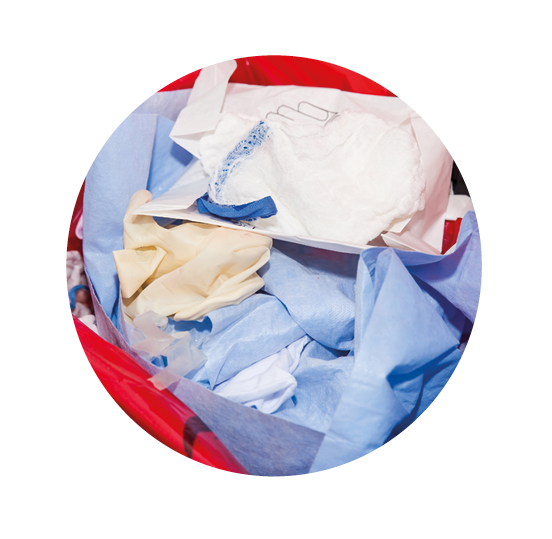A greener future
Steps to make vascular surgery more environmentally friendly

Tom Dawson, Becky Sandford, Andrew Garnham
Vascular and Endovascular Research Network
The Vice-President’s Symposium at the Vascular Societies’ Annual Scientific Meeting 2023 focused on the environmental impact of vascular surgery. In recent years we have learned more about the climate crisis globally and specifically how healthcare systems have been contributing to this1.
The symposium shed light on changes we can make to employ more environmentally friendly practices within the field of vascular surgery. These include operational changes, such as adopting the Intercollegiate Green Theatre Checklist2, to larger-scale infrastructure changes such as harnessing solar power and using it to power a hospital. The symposium comprised four talks addressing key areas in becoming net zero in vascular surgery.
Following the talks there was a discussion among attendees and speakers that further highlighted the eagerness for vascular healthcare professionals to be involved in improving environmental sustainability. The road to greener surgery needs all of us to make changes on individual and group levels. Together we can work towards the promise of a better future.
The Challenge of single-use plastics
The Grain4Lab team has been working to replace single-use plastic laboratory equipment with bioplastics, eliminating the need for plastic waste3. The project involves an innovative approach, capitalising on waste from the Irish food and drinks industry to create bioplastics. We learned how we can build on and develop these adaptations to lead to a change in thought processes, culture and the larger healthcare system.
Greener vascular surgery:
a survey of current practices
A survey by the Vascular and Endovascular Research Network, the Vascular Society of Great Britain and Ireland and the Royal College of Surgeons of Edinburgh was distributed to vascular healthcare professionals from June to September 2023. The survey captured environmentally friendly practices and identified areas clinicians felt could be greener, as well as obstacles to change.
Eighty-six responses were received from 41 vascular units across the UK and Ireland, showing healthcare professionals are supportive of making greener changes. These include reducing patient travel to hospitals, such as one-stop vascular clinics and virtual clinics. The results also highlight that there is still an opportunity for further changes, from recycling devices to using reusable materials.
Solar farm in the West Midlands
Healthcare systems contribute approximately 5% of carbon emissions globally4. The ability to power hospitals using alternative means can save thousands of tonnes of carbon.
New Cross Hospital in the West Midlands has built a solar farm that has the potential to power the hospital for at least two-thirds of the year. Stew Watson, Director of Estates Development at the Royal Wolverhampton NHS Trust, described the key steps in delivering this project, which included time, team leadership and a credible business case to take forward to the executive team.
It is also important to remain clear what you are trying to change. An NHS Trust-owned solar farm has the potential to save on energy bills and generate income, which can then be redirected to fund patient care.

Revolution-ZERO
The NHS generates more than a million kilogrammes of single-use surgical textile waste from operating theatres every week. Revolution-ZERO – a net zero, circular economy medical textiles company committed to sustainability – has a mission statement to replace these single-use materials with more effective, economic and sustainable alternatives5.
With reliance on the single-use model for so many years, enacting the change to use reusable materials is not without its challenges.
One project set up to tackle these problems was delivered by the Revolution-ZERO team during 2023 in partnership with the Royal Cornwall Hospitals NHS Trust. With funding from the NHS England Net Zero team and private investment, the world’s first renewable energy tariff, fully electric barrier clean room was built to supply Revolution-ZERO textiles for 100 large joint replacement operations. The benefits of this approach include improved resilience of the supply chain, better-quality products, cost savings, stimulation of local economies through employment, and carbon waste and water savings.
Revolution-ZERO is well on the way to delivering its mission with the potential to save tens of thousands of tonnes of waste and carbon emissions for the UK NHS.
|
References 1. www.england.nhs.uk/greenernhs/a-net-zero-nhs 2. publishing.rcseng.ac.uk/doi/10.1308/rcsbull.2023.25 3. grain4lab.ie 4. www.healthpolicypartnership.com/the-nexus-between-climate-change-and-healthcare 5. www.revolution-zero.com |

